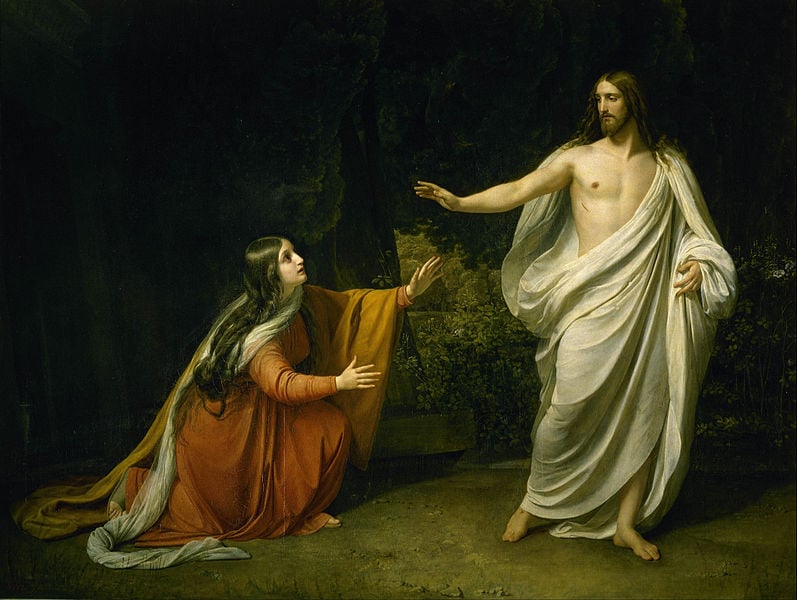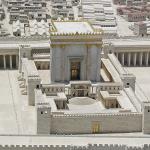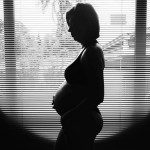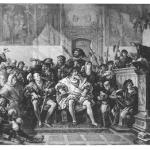Famously, Pope Francis called for a better theology of women. This intersects with my interests, as I agree with him that there is much to do here, as John Paul II himself saw with his call for a “new feminism.”
In this regard, one idea has been nagging me and I submit here for purview. The three great anointed offices of the Old Testament, which culminate in Jesus and which we all receive by baptism, are that of king, priest and prophet.
One word about the priestly vocation, first. When we talk about the male-only priesthood, it is often noted that Jesus only chose male apostles, but this is only part of the testimony of Scripture. As Joseph Ratzinger noted, in the Old Testament, you have women rulers (queens, but also Deborah, the Judge), you have women prophets, but you never have women priests.
Contrast this with the prophetic vocation. I think the New Testament bespeaks over and over again of women taking on a prophetic vocation. One thing I love to point out about women in the New Testament is that each and every single time a man dismisses a woman’s perspective, the narrative goes on to vindicate the woman–even, most strikingly at Cana, when that man is Jesus himself. I wrote glowingly of an article N.T. Wright wrote on women in the New Testament, but I do have a reservation: he writes of the woman who anoints Jesus with the expensive oil that she is fulfilling a priestly role. I disagree. I think she is performing a prophetic role: she is Samuel anointing David. I persist in thinking that Luke’s comment of Mary that she “pondered these things in her heart” is an indication that Mary is the source of the infancy narratives (who else would know what Mary pondered?).
And, most strikingly, Jesus’ Incarnation itself is bracketed by female prophecy. The Visitation, with Mary and Elizabeth and the Magnificat, at the start. And of course, the women at the tomb, and their role as “apostles to the apostles.”
We also find this prophetic “edge” to the lives of many of the great women saints. Saint Monica. Joan of Arc was a “queen” in a definite sense, but she was most definitely a prophet. Catherine of Siena, going to see the Pope in Avignon and telling him “Your Holiness, you are surrounded by corruption here.” “How do you know? You only just got here.” “I could smell it all the way from Italy.” Mother Teresa, invited to give a platitudinous speech about poverty at the UN General Assembly, who chooses to denounce abortion to the face of a hundred and fifty heads of state and government. The great women doctors and mystics of the Church were certainly prophets.
So this is the idea. Perhaps a fruitful theology of women might be found in this emphasis, if it exists, on the prophetic vocation for women. This would be a challenge to both the post-modern vision that insists there be no differences between the sexes, and a certain conservatism that insists that women not be heard.
I hasten to add, as a final but all-important disclaimer, that I am not at all making an argument on the lines of “All men should be X, all women should be Y.” All the baptized share in the three-fold office of king, priest and prophet. The suggestion is, rather, that, perhaps, for many women, there might be more of an emphasis on the prophetic vocation.
Thoughts?












